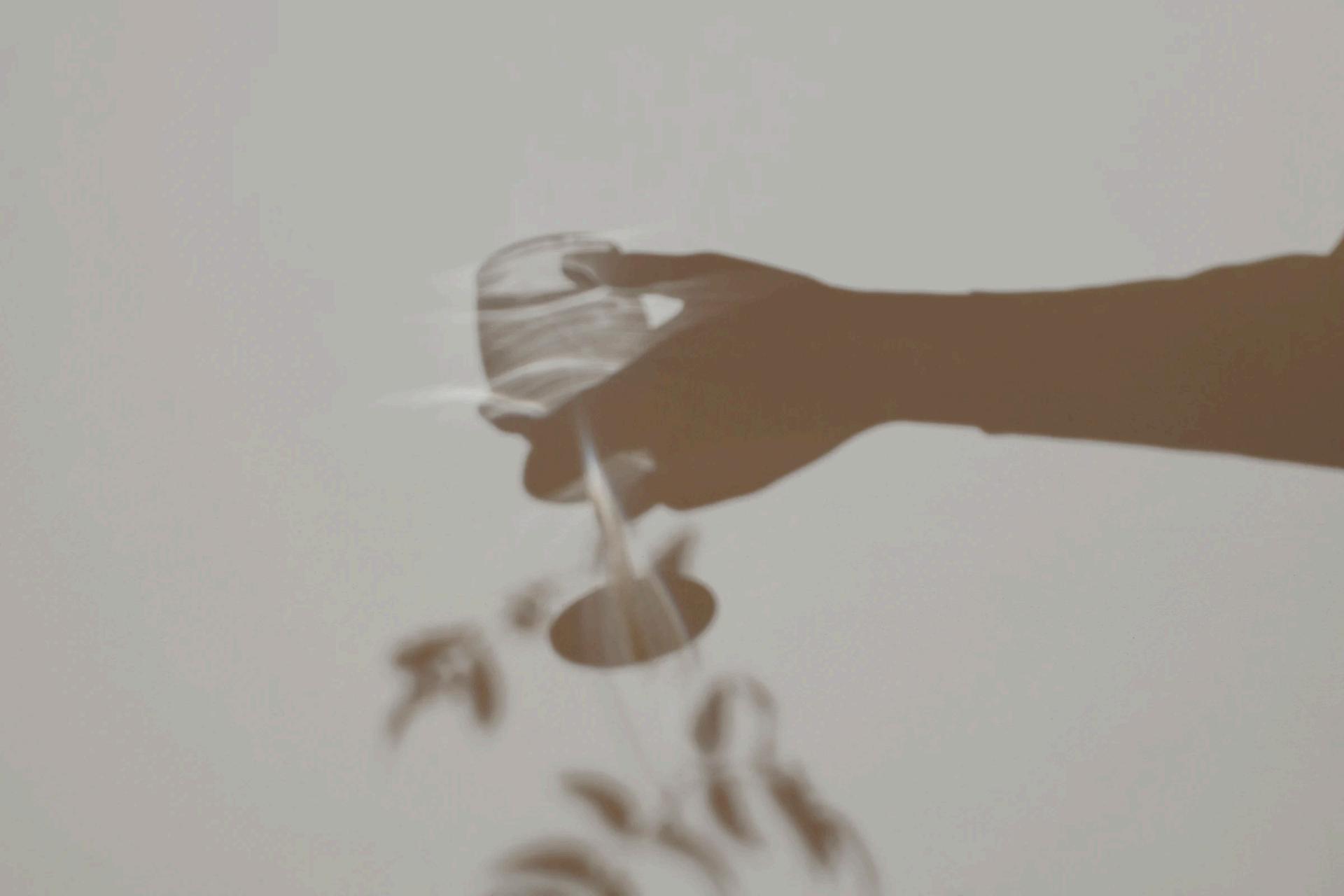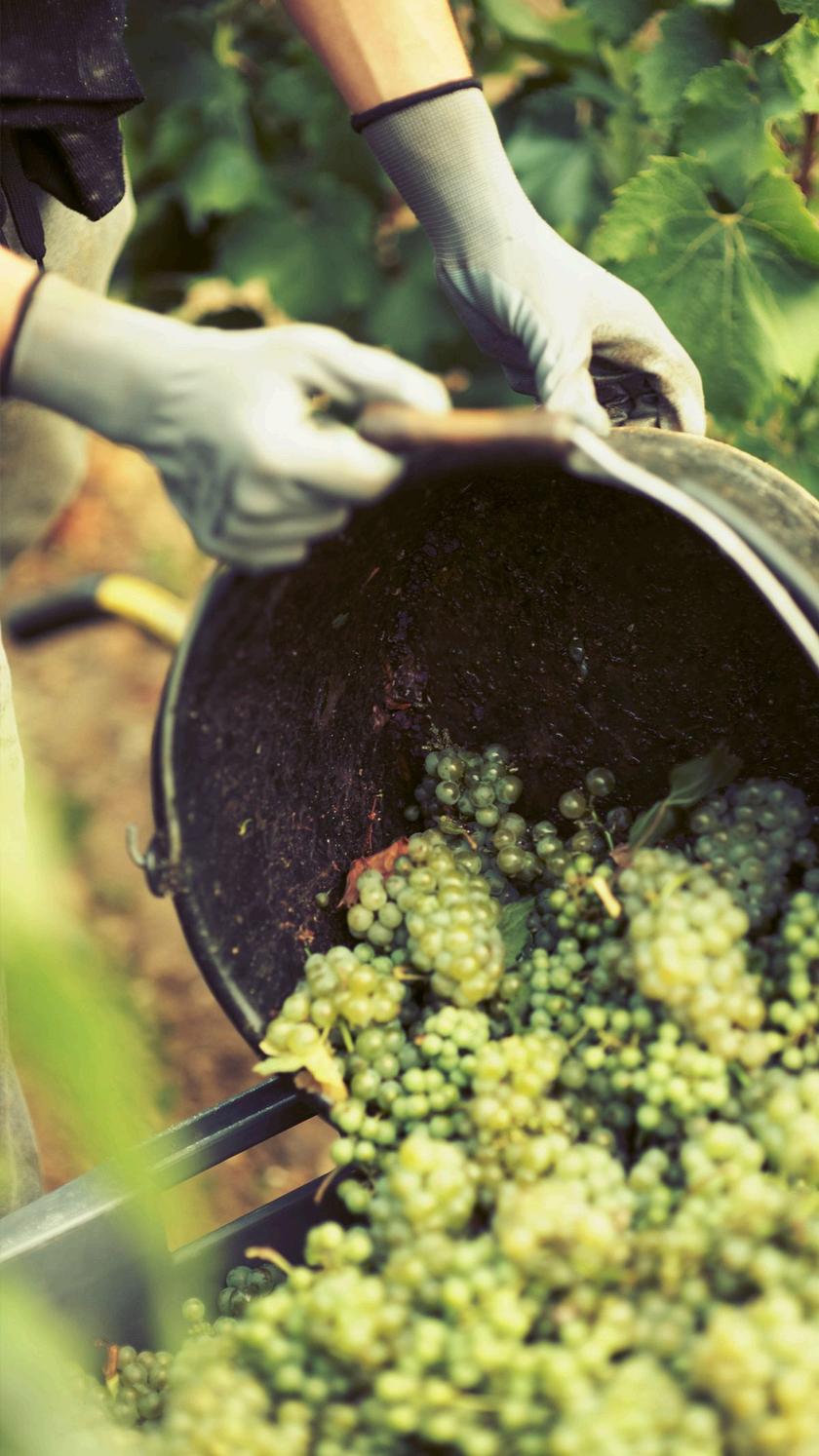

FIELD DISPATCH
I N
ORTThismagazinehasbeen craftedtoprovide comprehensiveupdatestoour luxurybusinessgroupand enterprisepartnersregarding branddevelopments,recent acquisitionsandcapability updatesthroughouttheyear
Ourcommitmentistokeep youinformedandempowered intheever-evolvingworldof luxury.
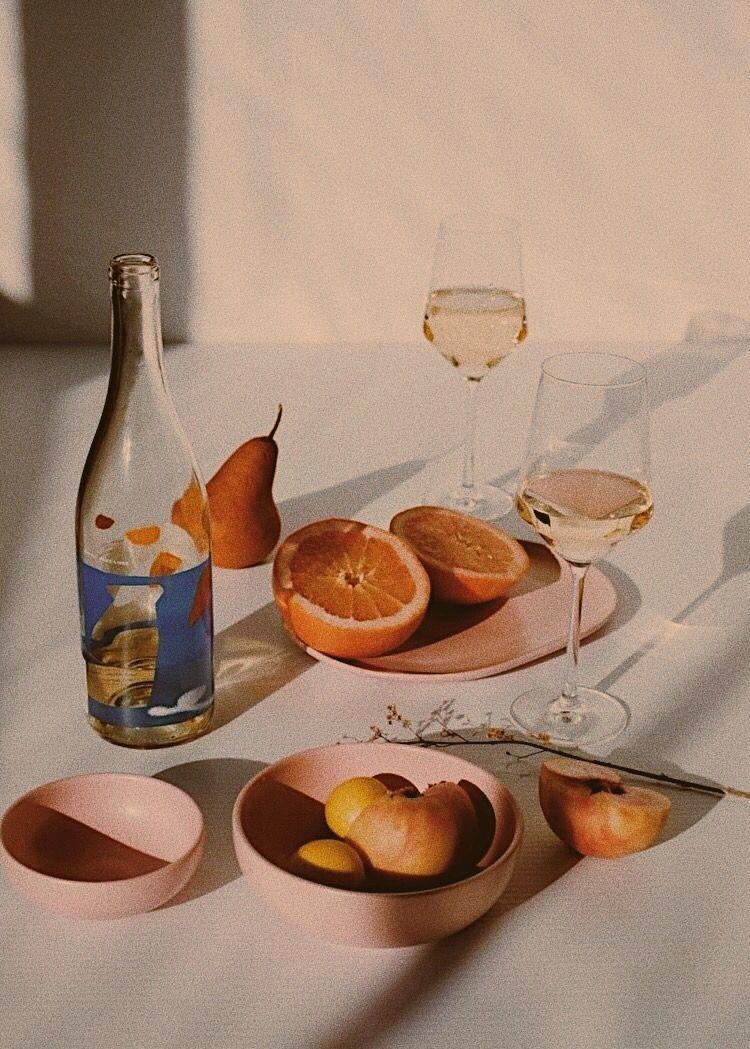


THE DISPATCH INTERVIEW
INSIDE THE VISION FOR THE FUTURE OF PREMIUM WINE
AN INTERVIEW WITH DAVID WARTER, CHIEF OF WINE & SPIRITS MAKING
AT GALLO
Diego: Why don't we start with your journey? How did you get to where you are?
David Warter: I got to where I am through just continually figuring out where the next challenge was When I was early in my career, I didn't know what I wanted to do I knew that I loved learning new things and finding challenges that I could tackle I started off doing two years in sales, and then I did two years in research engineering. In one of the research engineering projects, I measured the temperature of large red fermentation tanks, specifically 200,000-gallon fermenters, including the temperature inside their caps People would look at me and say, ‘You just seem to have a huge passion for this,’ and they were right
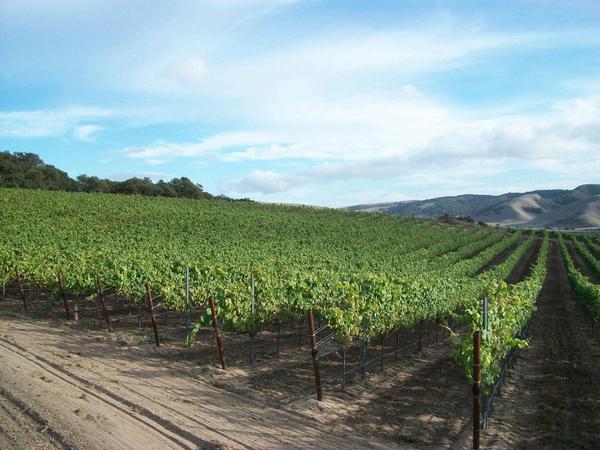
I thought it was fascinating stuff I loved thinking about all the dynamics of winemaking and how they affected wine quality The next thing I know, I thought to myself, maybe I want to become a winemaker I ended up going back to school and got my MBA and a Master’s degree in Viticulture and Enology at UC Davis After that, I managed Gallo’s research pilot facilities for a couple of years, I managed the Fresno wine-making team for a season, followed by the Livingston red wine-making team for two seasons. After that, I went into the wine and grape supply. So, I got a chance to learn about the dynamics of the grape market Considering Gallo buys 25% of the grapes in the United States, or probably in the state of California, that is a huge learning experience of grape dynamics in the marketplace I went on to manage the spirits department for six years and slowly had different parts of the wine-making departments added to my responsibilities Most recently, ironically enough, I had the research engineering team with which I started my career in Modesto I don't manage that specific team, but I do manage the other research engineering teams So that was a fun, weird twist of fate The one group that I started my career with is the one group that I don't get to manage

Diego: In your career, which of these challenges that you say you like to take on, has been the most rewarding?
David: As I was saying before, I always told my bosses to help me find a challenge, and I'm going to enjoy that challenge no matter what it is If I ever had extra time, they always figured out a way to fill it with a fun new challenge And I found it super exciting and rewarding
However, I think the most rewarding was the spirits department. Now, the reason the spirits department was rewarding was because it was the first time in my career where I was able to build and actually keep a team Before that point in my career, I would build a team, and then they'd tell me they wanted me to move
I had just spent the last three years building that team, and I wanted to invest in it by managing it It took a long time for me to get to that point So, working in spirits, it was fun to not only be given the chance to build and work with a team, but to continue to watch them flourish and grow

One of the things that I really love is managing people and focusing on the development of my people I always say my management philosophy is starting with people first, process second, and then the product It's something that I do differently from a lot of my predecessors, because as a product maker, I think a lot of people want to default to our only responsibility being the product And I say, yes, our people's job is the product, but our responsibility as a group is to put processes in place to enable our people to do the best job they can. Then we'll find that in the end, they will take care of the product, because we've enabled them to do that. It's been fun to see these people grow, to be able to invest in them, and to really watch it pay off
Diego: I would like to hear your perspective on the current state of the industry and where we are headed
Considering the market dynamics we observe such as people drinking less and increasingly opting for ready-todrink (RTD) beverages and other convenient options- are these trends influencing your group's strategies or operations in any way?
David: Most definitely, it affects the workplace every day, because one of the things we have to do as a consumer goods company is ask the question of, what does our consumer want? And if we can't answer what our consumer wants, then we're not going to be successful, no matter the background of the industry. Now, what's been challenging is, and even as a total alcohol beverage industry, have we done a really good job of listening to our customers, or have we chosen winners over time?
The strategy in the greater wine industry to focus on an ever-increasing dollar bottle of wine cost and watch the bottom end of our industry continue to shrink is concerning
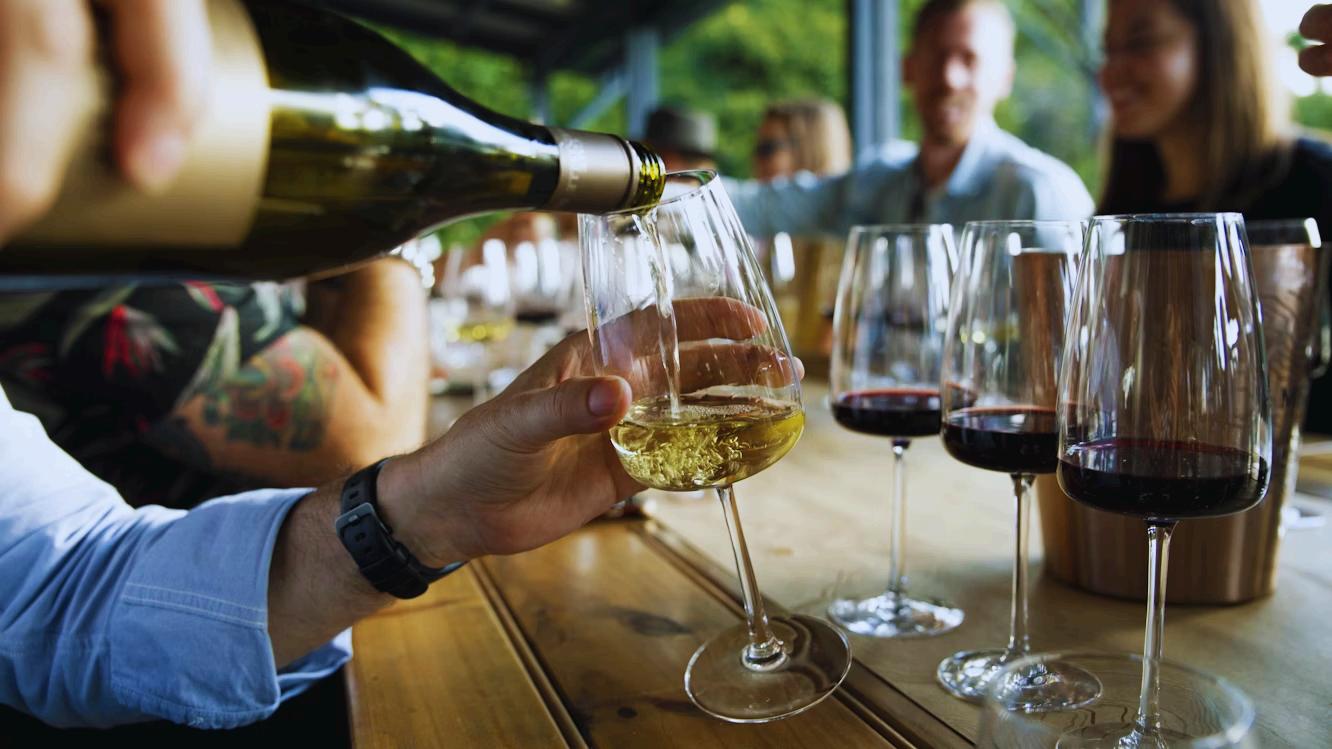
When I was starting off, there was definitely a spot for the Gallo family vineyards of the world. I remember going to parties and bringing very early Carlo Rossi. There were economics that drove those sorts of decisions
A massive percentage of wealth in the United States is still in the hands of the baby boomer generation, with an increasing amount of that wealth going to Gen X And now I think we're at a point where we really need to continue to ask ourselves, where is the customer? Because by chasing the ever-increasing dollar value we are chasing, we've left out how we are appealing to Gen Y, and how we are appealing to Gen Z The numbers would say that Gen Y's wine participation is very low comparatively, especially compared to Gen X, and to the young boomers
So, I'm speaking as a wine industry, how do we figure out how to appeal to what they're looking for? How can Gallo ensure we are the leading company in this area? We have a range of abilities to appeal to people at different price points, with different flavors How do we make sure that we really are thinking through the changing dynamics, both in terms of age and racial composition of the United States? And how does that affect flavors, and how does that affect choice, and what they're looking for? I think that we have made some of that change by focusing on the RTDS that we've been very successful with in terms of the High Noon’s and the VMC’s of the world And now we need to really ask that question in the wine teams: how are we going to appeal to the new customer? Have we challenged ourselves enough to ask, what can we do in terms of different flavors, different mouth feels, and different ways of appealing to customers? And we don’t want to do that exclusively to the point where everything tastes the same. I think part of the element is to use the diversity and size of our company to really help track that.
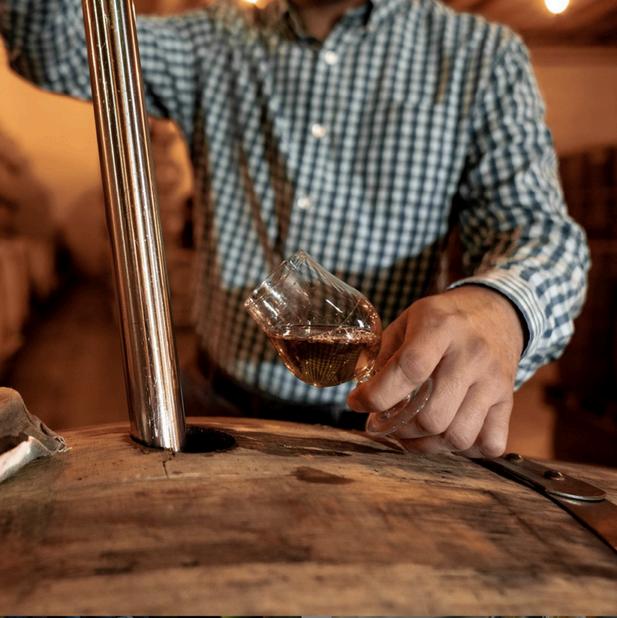
I know that you've been working with the Martini portfolio and trying to figure out how to get The Gryphon to go from a big-bodied red wine to much more of a classic, much easier-to-drink wine Because if we want big, bold wine, that's what we've got the Orin Swift portfolio for, right? When considering a luxury perspective, we aim to develop a comprehensive portfolio that appeals to customers seeking a variety of offerings As a company, we must also broaden our view to examine the world more thoroughly
Then, at the other end of the spectrum, I currently have five non-alcoholic projects going on, too For example, we have a non-alcoholic beer that we will be launching at the beginning of 2026 We are currently testing five different technologies for creating non-alcoholic wine We are launching a Gallo Family non-alcoholic blush wine, and we just launched an energy drink So, we are looking at some expansions in the functional beverage world to better understand what the consumer wants I think that's where it's really fun to be part of the winemaking team right now, because you work with the product insights teams, consumer research teams, marketing teams to really understand how to appeal to the customer, and then as a winemaking team, that's where you're given a new challenge by being allowed to try to come up with something no one else has before
Diego: Can you tell me about R&D and how we are doing on new varieties?
David: On the grape side, we have a great breeder,
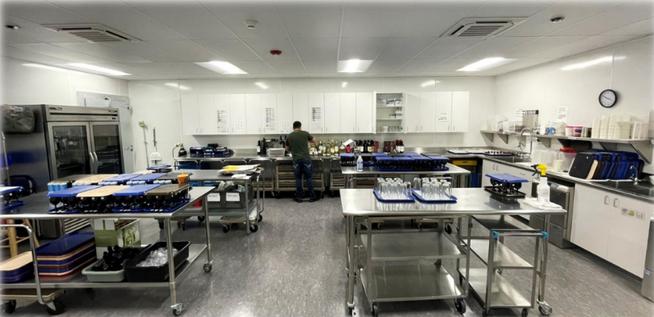
Dr Peter Cousins He's probably one of the best-known grape breeders in the United States. He used to work for Cornell, and he's basically combed the world and looked for different grape varieties with different attributes Sometimes they had large amounts of flavor, had great yields, or were resistant to different diseases So, he's looking at cross-breeding these varieties and figuring out what the key genes are that drive those characteristics He's figured out how to look at the genome of his crosses and say, based on our understanding, this one should have the following attributes Then we put them in the ground, and we grow out four vines at a time, and we make wine in our research facility, where every year we probably make upwards of fifty new grape varietals
It's a three-stage process, so maybe it's fifteen to sixteen new ones a year From doing these, we'll learn that we did understand, yes, that variety has those attributes, or no, somewhere we didn't have a great understanding. A big question we ask ourselves while doing this is, why? Why is that phenotype being expressed? Why is that characteristic expressed? Was it the genes, or was it the situation? So, Dr Cousins is brilliant, that's why he's got a PhD
Diego: So, you're saying that through this genetic analysis, you can almost identify specific gene markers that tie to a specific quality of a wine and what that yeast would do to the wine, that's remarkable.
David: We're working on that, too Once we understand what we're going after, we can release the other specialists Our chemistry group can then pass this information to our
viticulture group, biology group, and wine makers, allowing us all to contribute to emphasizing this characteristic Someone could say that X compound is in this part of the grape, so now I'm going to try doing this extraction that should be able to get that compound out Then the viticulturist can say, I know where X compound is, but I'm going to see if I can get a whole lot more of it, so it's a lot easier for you to get out Then that way, we have everybody working together to help us figure out how to emphasize, say, a passionfruit flavor in Sauvignon Blanc Now, we're figuring out key lead attributes in Pinot Noir and Cabernet Then we also have to ask the question of whether they are all looking for standard wine? Or are some of them looking for flavored wines? You may find some consumers are one way, and some consumers are the other So, you must continually pursue multiple ways of going after the idea. We’re trying to think through these things so that when it comes to making a wine that might appeal to a different consumer, we already know how
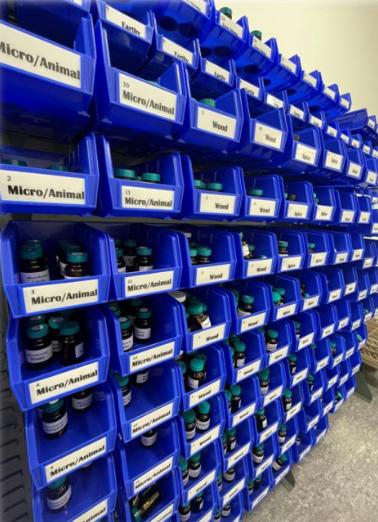

SIP & DISCOVER
THE ALGORITHM’S
VINTAGE: How AI is Reshaping Wine Culture
The sommelier of the future might not have a silver tastevin around their neck or decades of cellar experience Instead, they could be an algorithm that knows your palate better than you do, predicting your next favorite bottle with uncanny precision
Artificial intelligence is quietly revolutionizing the wine industry, transforming everything from how we discover new bottles to how vintners’ price their products This technological shift represents more than mere efficiency gains it's fundamentally altering wine culture itself, creating both unprecedented accessibility and new forms of exclusivity
The Data-Driven Palate
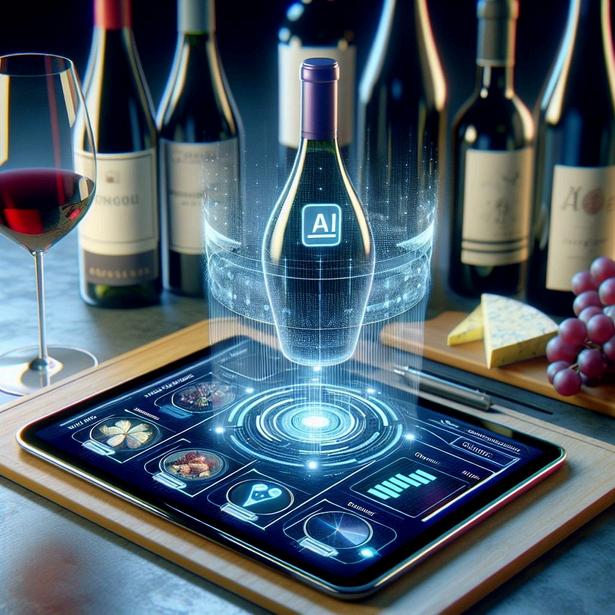
"We'reessentiallycreatingadigital fingerprintforeverywineandevery palate," explainsaVivinospokesperson.Theplatform's recommendationenginenowinfluences purchasingdecisionsformillionsofwinedrinkers globally,effectivelydemocratizingwine knowledgethatwasoncetheexclusivedomainof trainedsommeliers
At the forefront of this transformation is Vivino, the world's largest wine community with over 50 million users. The platform's AI analyzes millions of user ratings and reviews to generate personalized recommendations, processing not just numerical scores but the nuanced language of tasting notes When a user describes a wine as having "bright acidity" or "earthy undertones," machine learning algorithms map these descriptors to chemical compounds and flavor profiles.
Similarly,NakedWineshasbuiltitsentire businessmodelaroundAI-drivenpersonalization Thecompany'salgorithmsanalyzecustomer purchasehistory,ratings,andeventhetimeof yeartopredictwhichwinesfromtheirportfolio ofindependentwinemakerswillappealtospecific customers Thisapproachhashelpedthecompany achieveacustomerretentionratesignificantly higherthantraditionalwineretailers
Beyond Recommendations: The Invisible Hand of AI
While consumer-facing applications grab headlines, AI's most profound impact may be behind the scenes Wine retailers are increasingly using dynamic pricing algorithms that adjust costs in real-time based on demand patterns, inventory levels, and competitor pricing These systems can identify when a particular vintage is gaining popularity and adjust pricing accordingly, sometimes within hours
The technology extends to authentication and quality control. Companies like Chai are developing computer vision systems that can verify wine authenticity by analyzing bottle characteristics, label details, and even cork conditions For an industry plagued by counterfeiting particularly in the highend market where fake bottles can sell for thousands of dollars this represents a crucial advancement.
The Cultural Paradox
This technological integration creates a fascinating paradox within wine culture. On one hand, AI is

democratizing wine knowledge, making sophisticated recommendations accessible to anyone with a smartphone Apps can now translate complex tasting notes, suggest food pairings, and even use augmented reality to overlay information when users point their cameras at wine bottles.

Yet this accessibility may be creating its own form of exclusivity As algorithms become more sophisticated at predicting preferences, there's growing concern about the "filter bubble" effect where AI recommendations, while accurate, may narrow rather than expand consumers' wine horizons "There's a risk that we're creating algorithm palates," observes wine educator and Master of Wine candidate Sarah Thompson
"When everyone's recommendations are optimized for their existing preferences, we might lose the serendipitous discoveries that have always been part of wine culture."
The Premium Response
This concern has sparked a countermovement within the industry. High-end wine retailers and restaurants are increasingly marketing their human expertise as a luxury differentiator The rise of "AI-
free" wine curation services suggests that some consumers are willing to pay premium prices for human-guided discovery.
Prestigious wine auction house Christie's, for instance, continues to emphasize the irreplaceable value of human expertise in their wine department, even as they use AI for market analysis and authentication. The message is clear: while algorithms can process data, they cannot replicate the cultural knowledge and emotional intelligence that define true wine expertise
Looking Forward: The Hybrid Future

The most successful wine companies are adopting what industry analysts call "AI-augmented authenticity" using technology to enhance rather than replace human storytelling and expertise This approach recognizes that while AI excels at pattern recognition and personalization, wine culture ultimately depends on human connection and narrative
Emerging applications suggest even more profound changes ahead AI systems are beginning to analyze satellite imagery, weather data, and soil composition to predict vintage quality before grapes are even harvested Some experimental programs are creating personalized wine education journeys, using machine learning to understand how individual palates evolve over time and suggesting wines that will challenge and develop taste preferences
The technology is also enabling new forms of transparency Blockchain-based systems combined with AI tracking are allowing consumers to trace wines from vineyard to glass, accessing detailed information about farming practices, winemaking decisions, and environmental impact
The Stakes of Transformation
As AI becomes more sophisticated, the wine
industry faces critical decisions about maintaining its cultural authenticity while embracing technological efficiency The risk isn't just commercial it's cultural Wine has always been about more than taste; it's about place, tradition, and human craftsmanship
The challenge for the industry is ensuring that AI enhances rather than diminishes these cultural values Early indicators suggest a bifurcated future: mass-market wines increasingly influenced by algorithmic optimization, while premium segments emphasize human expertise and traditional methods as luxury differentiators
For consumers, this transformation offers both unprecedented access to wine knowledge and new forms of choice paralysis As algorithms become better at predicting what we'll like, the question becomes whether we want our tastes predicted or whether the joy of wine lies partly in its capacity to surprise us
The algorithm's vintage is just beginning to age How it develops will depend not just on technological advancement, but on how successfully the wine industry balances innovation with the timeless human elements that make wine culture so enduringly compelling.
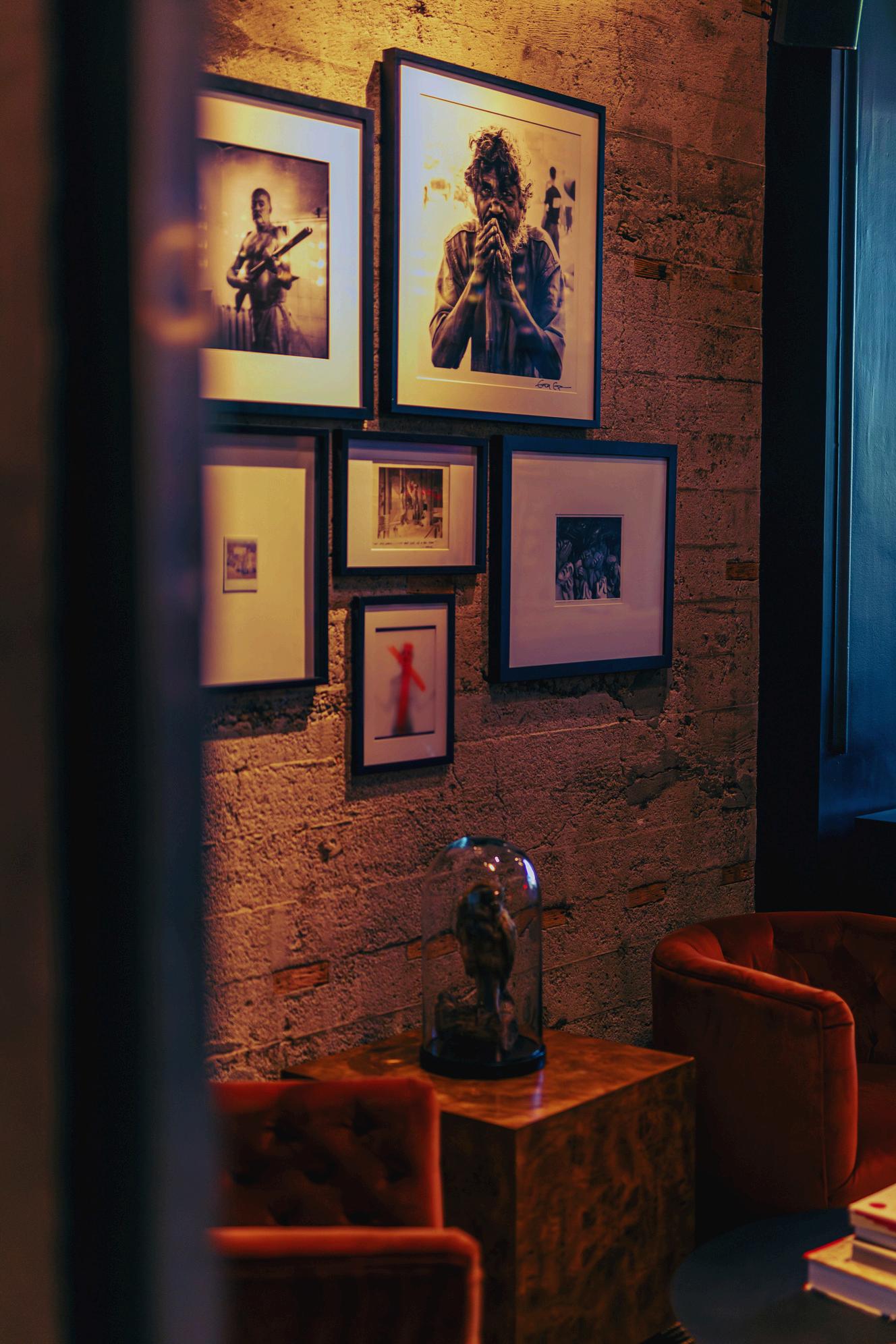
OUTSTANDING INDIVIDUALS: STORIES OF SUCCESS
LUXURY HOSPITALITY
Greg Clinnin & Marcel Naify
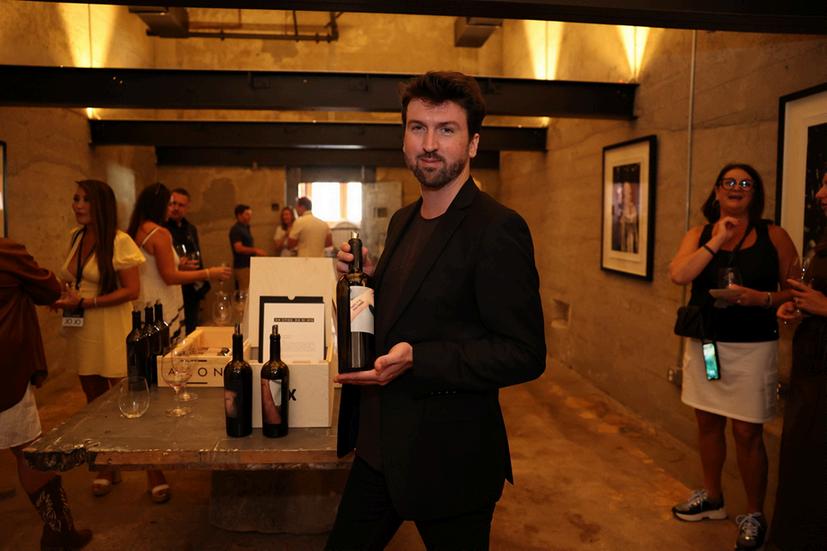
Greg Clinnin
Orin Swift Cellars Tasting Room Associate
Nominated by Monica Sheppard
Q: Why did you nominate Greg for this recognition?
A: Greg is an amazing team member here at Orin Swift who truly embodies what exceptional hospitality looks like He doesn't just pour wine - he customizes every single experience for each guest who walks through our doors What sets him apart is how he makes real, genuine connections with our members and customers. He's invested in the entire customer journey, following through from their initial tasting room visit all the way to ensuring they receive their orders and are completely satisfied
Q: What makes Greg a standout member of your team?
A: Greg consistently performs as one of our top salespeople while maintaining outstanding customer reviews across the board His knowledge of Orin Swift wines and wine in general is truly unparalleled - but more importantly, he knows how to translate that expertise into meaningful experiences for our guests
Q: Can you provide a specific example of when Greg went above and beyond?
A: The thing about Greg is that going above and beyond isn't a special occasion for him - it's just how he operates every single day with every single guest He takes the time to curate wine selections based on each person's individual needs and interests, and he takes so much pride in getting it exactly right. Whether someone is a wine novice or a seasoned collector, Greg always finds a way to make a personal connection that transforms a simple tasting into a memorable experience That consistency and genuine care for each guest is what makes him exceptional



Marcel Naify
Orin Swift Cellars Tasting Room Associate
Nominated by Monica Sheppard
Q: Why did you nominate Marcel for this recognition?
A: Marcel is truly an amazing team member who brings something special to our workplace every single day. He shows up to work with such a positive attitude that it's infectious - it lifts everyone around him But what really sets Marcel apart is his ability to build personal, meaningful connections with our members and customers He doesn't just serve wine; he creates genuine relationships that make people feel valued
A: Marcel is consistently one of our top salespeople, but his success goes far beyond numbers. He's incredibly knowledgeable about so many different topics - wine, of course, but really everything This allows him to have a conversation with anyone about anything literally Whether someone wants to talk about travel, food, sports, or life experiences, Marcel can connect with them on their level.
That versatility and genuine curiosity about people is what makes him so effective and beloved by our guests
Q: Can you provide a specific example of when Marcel went above and beyond?
A: There's one experience that perfectly captures Marcel We had a couple come in that Marcel was hosting - they were celebrating their anniversary and came back the next day for a different experience. During their conversations, they shared that this wasn't just any anniversary celebration The husband had been in a terrible accident, and they were actually celebrating the anniversary of his recovery from that trauma Marcel listened to their story and then introduced them to our "Handle with Care" wine. When he explained the significance of handling life with care, the couple burst into tears because it resonated so deeply with their journey Marcel had taken the time to really hear their story and found a way to make their experience profoundly personal and meaningful.

Q: What makes Marcel a standout member of your team?


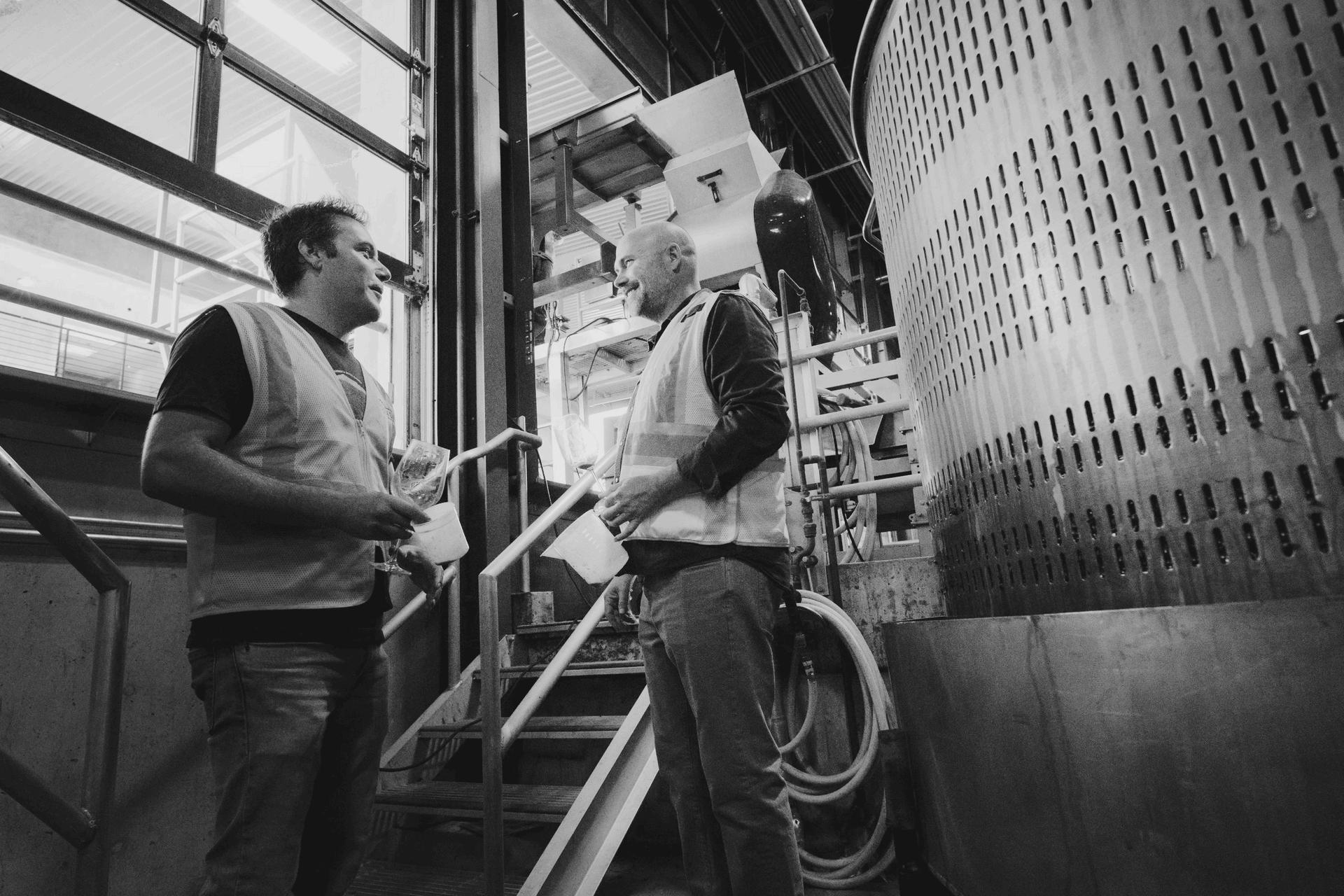
BRAND UPDATES
LUXURY BUSINESS GROUP

NEW LAUNCH OF ‘THE NEW COLOSSUS’ AND ‘NIGHTSHADE’

The initial rollout will be in the West only during September with a national roll in February of next year, Denner has a unique opportunity to bring its signature style, of refined elegance, different from Paso Robles. These wines take a more European approach to Rhone varietals with a more accessible price point.


The New Colossus is a refined, Napa-quality Cabernet that breaks from Paso's jammy stereotype, and emphasizes classic elegance.
Nightshade is a GSM-style blend with Malbec, channeling Châteauneuf-du-Pape's balance and drinkability.

NEW LAUNCH OF THE OSC ‘SIGN OF THE TIMES’

Orin Swift will be releasing the Cabernet-based blend, Sign of the Times, in August 2025! Sign of the Times is a reflection of the uncanny moment we find ourselves in. The line between real and surreal has begun to dissolve. For this label, Dave was inspired by an AI model which took his past artwork and generated new interpretations.

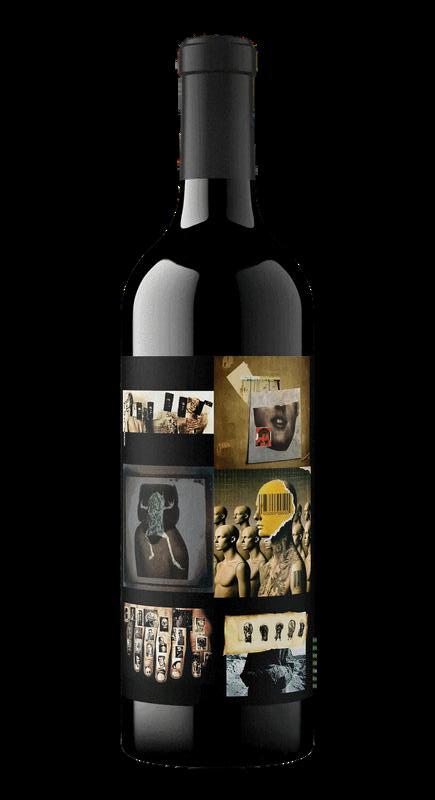
Going back and forth, the model and Dave prompted each other to reflect on the past while using it as a starting point for a new experiment. This label portrays something new and reimagines what has already been done.
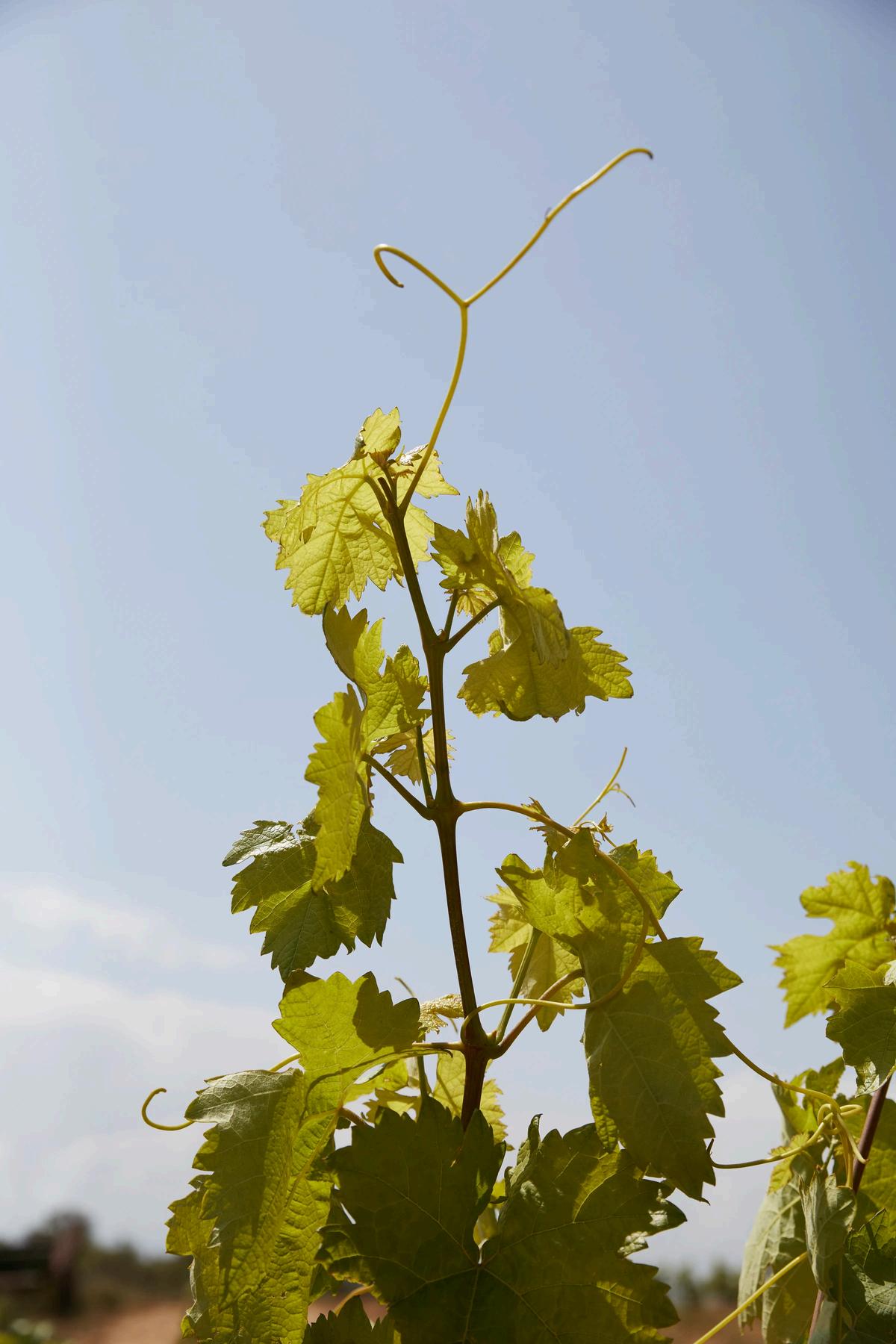
LUXURY BUSINESS GROUP IMPORTANT DATES
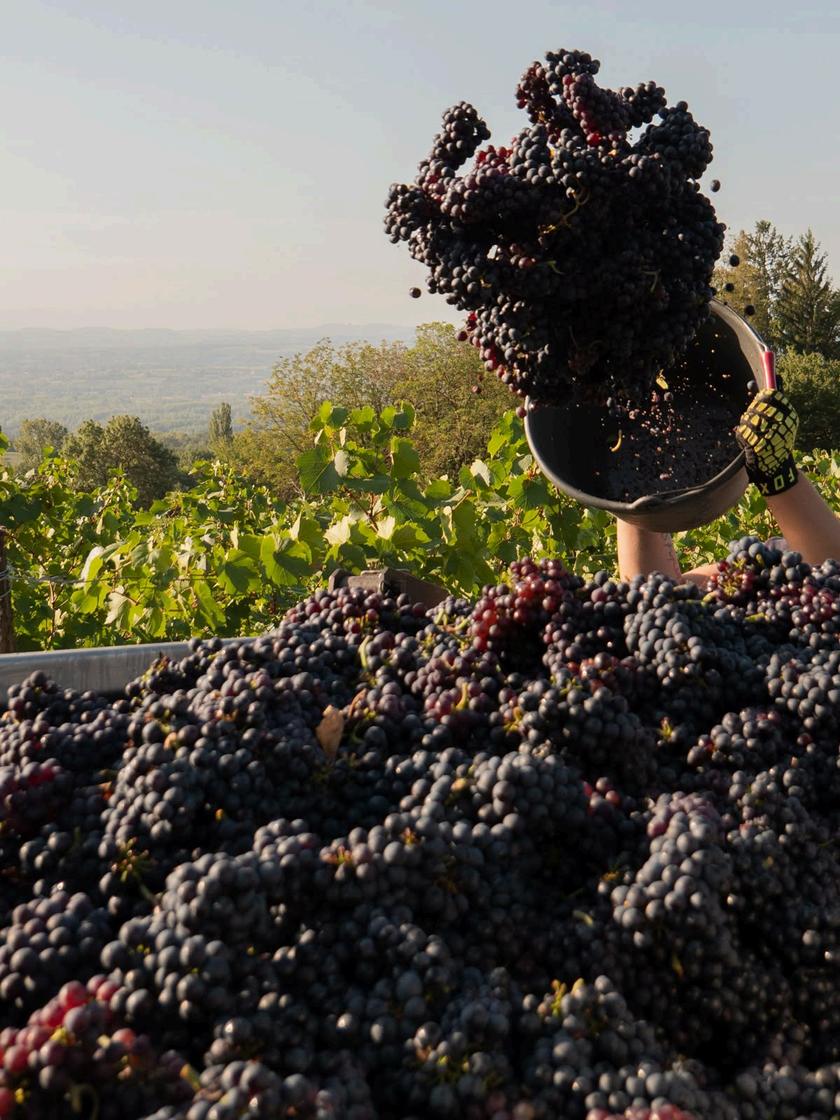
K ANNIVERSARY IMPORTANT DATES
July
Wilkes, Scott
Anaya, Juan Lopez, Jose Ramos, Jesus Fredrickson, Devan
Zamora Ochoa, Maria
Torres Juarez, Gloria Lopez, Ronald Peck, Kristen Tyler, Haley Pederson, Kristine Martinez, Macy Fitz, Eric
Ledesma, Jose Haun, Elizabeth Jaggers, Keri
Ortiz De Lopez, Yolanda Patino, Jorge Madera, Vicky Mcmahon, Abby Hernandez, Daisy
Valencia Galvan, Ernesto Wunschel, Izabella Lunde, Rachel Raymond, Michael Porter, James Gomez, Alex Myatt, Emilie
Nava Murillo, Juan Aparicio, Jose Guillory, Tannor Roemer, Charles Robledo, Julianna Delorenzo, Bella Ammerman, Lucas
Rodriguez Ceja, Jose Kiehl, Franklin
Robledo, Daniel
August
Gross, Stanley
Irwin, John
Wasley, Therese Morales, Allison Donlon, Shamus
Cone, Autumn
Gagnon, Madelyn Gonzalez, Miguel Hermann, Anthony Meneghelli, Aaron
Leon Ramirez, Ramiro Beauchamp, Zachary Richards, Jack
Simpson, Samantha
De Leon, Eliezer
Hewson, Kimberly Hock, Andrew
Bussey, Joseph
Nunez Perez, Bryant
Delia, Tristan Resendez, Pilar
Olsen, Zane Beasley, Payton
September
Palacios Guzman, Jose Jorge Juarez, Gerardo Burner, Jennifer Soriano Calvo, Genaro Watson, Paige Cordell, Jamie
Morriss, Angela Kirker, Alexandra Fowler, Fayth
Wilson, Hannah Smalley, Phillip Green, Jennifer Johnson, Mark Godinez, Luis
